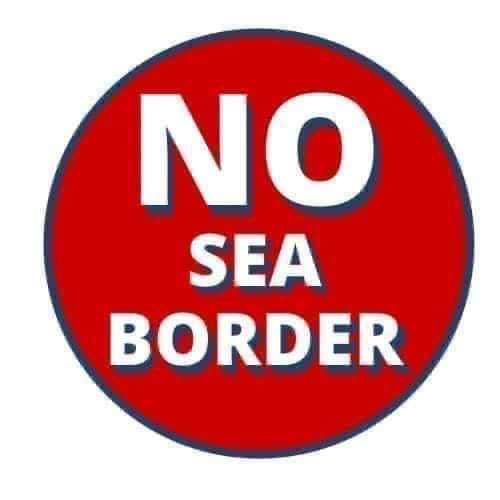TUV has published its response to the House of Lords call for evidence on the Government’s Protocol Bill.
Commenting Jim Allister said:
“On the day that the Prime Minister told the Commons that she is “completely committed” to the Protocol Bill it is timely that TUV should publish its response to the House of Lords call for evidence on the Bill.
“Throughout our response, TUV is at pains to stress that while the Protocol is hugely damaging to Northern Ireland’s economy; the core issue is one of sovereignty. The Protocol has left this part of the United Kingdom as effectively an EU colony, subject to laws we do not make and cannot change all overseen by a foreign court.
“Under the Protocol, Great Britain is regarded as a foreign country when it comes to Northern Ireland. The constitutional vandalism of the Protocol has been exposed in the Court of Appeal with the Court finding and Article VI of the Acts of Union has been “subjugated” by the Protocol.
“It is therefore imperative that the Government acts to restore British sovereignty in Northern Ireland. In this respect, it is far from clear that the Bill will actually deliver as it is but enabling legislation which even if passed is dependent on Ministers taking further action.
“Insofar as the Bill could restore equilibrium by taking back the EU’s ill-gotten sovereignty over Northern Ireland, it may go some way to restoring stability to the economic and political climate in Northern Ireland. But, again, this largely depends on the content of the resulting regulations being adequate and wholly restorative of and compliant with Article 6 of the Acts of Union.
“If Stormont is to have any chance of restoration, then Northern Ireland’s place, both economically and politically, wholly within the U.K. must be restored. If the price of Stormont continues to be implementation of the Union-dismantling Protocol, then its prospects are non-existent. Stormont or Protocol remains the choice!
“As the sovereign power HMG has not just the right but the obligation to recover sovereignty from the EU over Northern Ireland and its economy. Thus, the legal and political justification for the Bill is unassailable.
“Sadly, in the Protocol HMG surrendered control of much of the laws and economy of Northern Ireland to a foreign power. That wrong must be righted.
“TUV questions the need for a dual regulatory regime for goods. The practical reality that if goods are to be exported, they must be manufactured to the standards of the importing country should be enough. U.K. companies seeking to export must meet the requirements of the relevant foreign market; that should prevail whether that company is in London, Cardiff, Edinburgh or Belfast. Such does not require the formality and bureaucracy of a dual regulatory regime.
“The consequence of dual regulation is to leave Northern Ireland subject to huge swathes of foreign law. Red and green lanes themselves signify a customs border in the Irish Sea – something which lies at the core of objection to the Protocol. It is at borders you have green and red lanes so of themselves they confirm – rather than remove – the partitioning of the United Kingdom.
“Liberating Northern Ireland from both EU state aid rules and its VAT regime will not only restore U.K. wide equilibrium and make all subject to domestic rules and legislation (as should be the norm) rather than foreign jurisdiction, but will also facilitate the full operation of the all-important internal U.K. single market and remove any knock-on detriment or threat to parent GB companies arising from EU restrictions on state aid.
“With the aid of anti-Brexit parliamentarians, the EU wiped the U.K. Government’s eye in the negotiations which led to the Protocol so that it secured legislative and economic control over part of the U.K. Having obtained such a triumph, the EU, unsurprisingly, has been trenchant in refusing to give up that ill-gotten sovereignty. Whereas it has been prepared to ‘talk’ about how the Protocol could be better implemented, its negotiating mandate prohibits renegotiation of its core tenets. Hence, the folly of placing faith in ongoing ‘technical talks.’
“The problems with the Protocol are not centred on how it is being implemented (remembering the continuing grace periods mask its full practical and economic impact) but on its core principles and scope. It is its subjection of part of the U.K. to EU governance and control, through retention of NI in its single market and under its customs code and vat regime, which must be negated if progress is to be made.
“Tinkering and seeking to make the Protocol operate more smoothly will not resolve the issues. Above all, sovereignty is the issue. That can only be resolved by full retrieval by HMG. If the Protocol Bill aids that process, then good, but ‘technical talks’ will never do so.”
Read the full submission here.

